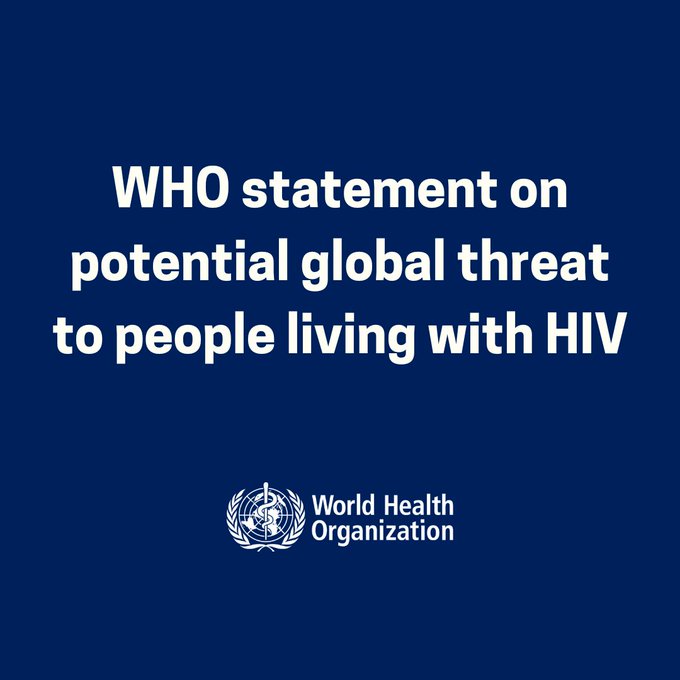GENEVA Switzerland- The World Health Organization (WHO) has issued a stark warning over the potential consequences of the United States’ decision to pause funding for HIV programs in low- and middle-income countries.
The move, linked to President Donald Trump’s policy shift, could disrupt life-saving treatment for millions of people worldwide.
According to WHO, more than 30 million people currently rely on these programs for HIV therapy.
With nearly 40 million people living with HIV as of the end of 2023, experts fear the funding freeze could trigger a surge in new infections and deaths, reversing decades of progress in the fight against the virus.
“We are sounding the alarm on the catastrophic consequences of this decision,” WHO said in a statement. “This is not just about numbers—it’s a human crisis. Without urgent intervention, millions of people could face severe illness and death.
WHO expresses deep concern about the implications of the immediate funding pause for #HIV programmes in low- and middle-income countries.These programmes provide access to life-saving HIV therapy to more than 30 million people worldwide.A funding halt for HIV programmes can…
At the heart of the crisis is the U.S. President’s Emergency Plan for AIDS Relief (PEPFAR), a flagship initiative that has been a cornerstone of the global HIV response for more than 20 years.
Operating in over 50 countries, PEPFAR has provided treatment to over 20 million people, including more than half a million children under 15.
Since its launch, PEPFAR has saved over 26 million lives. But the current funding freeze has put its future in jeopardy, threatening to upend efforts to control the HIV epidemic.
“The thought of returning to the dark days of the 1980s and 1990s, when millions died from HIV/AIDS every year, is unacceptable,” WHO warned.
WHO is urging the U.S. government to reconsider and allow exemptions that would ensure continued access to HIV treatment.
The organization is also working with global partners to mitigate the impact of the funding halt, calling on the international community to step in and prevent a humanitarian disaster.
“We are committed to supporting PEPFAR and working with national governments to manage this crisis. The world cannot afford to let millions of lives hang in the balance.”
The pause in U.S. funding comes at a critical time when HIV programs were making significant strides toward reducing infections and expanding treatment.
Health experts warn that any disruption to these services could undo years of progress and set back global efforts to end HIV/AIDS as a public health threat.




